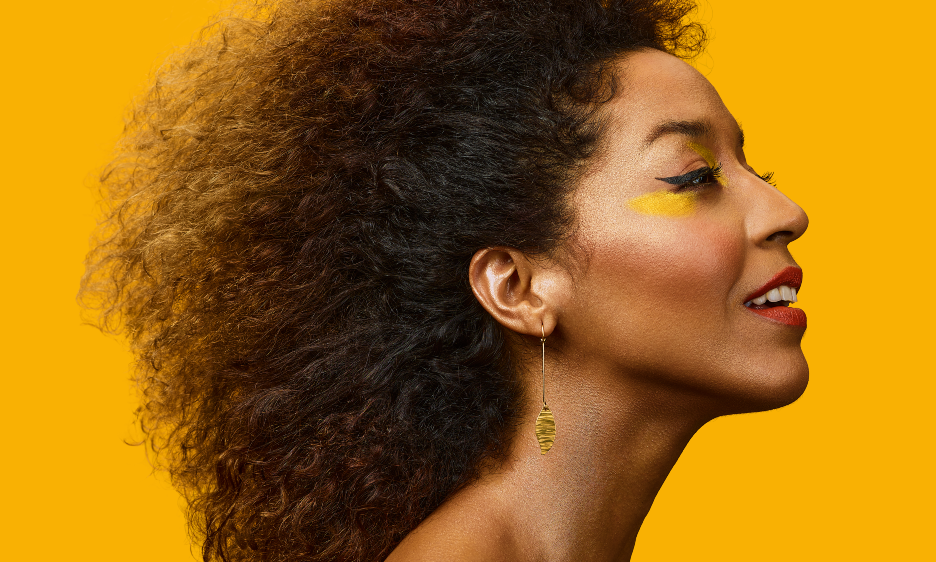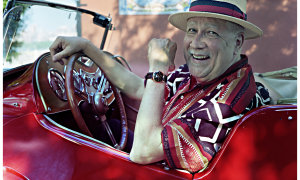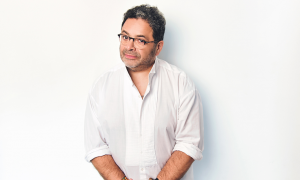Home » Jazz Articles » Inside The Interview » Freedom, Not Formula: Yilian Cañizares’ Living Ritual
Freedom, Not Formula: Yilian Cañizares’ Living Ritual

Courtesy Fred Socha
Jazz, for me, is freedom—the freedom to express myself, to say how I feel in the moment, and to share my vision of the world as a Cuban, as a woman, and as a citizen of the world.
—Yilian Cañizares’
She came up through conservatory halls and community traditions, building a technique that could hold both. "I have had Classical training... it was a fundamental base to build my technique, because the violin is such a very demanding and complicated instrument," she says. "But with my style of music, I was looking for freedom." That duality—discipline in service of risk—still drives her writing and arranging.
On "Ore," a single that sounds like a ceremony folded into a groove, the origin story is a reunion. "It was a gift that a friend from childhood composed for me... It's a link from our childhood, from our motherland... It's truly beautiful to see someone whom I have known since I was six years old. Can you imagine? We are joined together on our path again through music." The production brief was simple: protect the truth of the song. "I had a lot of freedom to put my own sound on it, my own way of phrasing, to add some vocals... Every song I release needs to come from a very authentic place—a place of honesty—and a place where people get to know me better and get to know my heart a little bit better."
The ethic behind Vitamina Y is equally clear. "It will bring some positivity in this difficult moment of our humanity... a message of unity, of hope, and something that is really positive and uplifting for the audience." Her perspective is shaped by distance and return. Born in Havana, she left home young to study abroad, later winning the Montreux Jazz Festival Competition with her group Ochumare, and developing a voice critics describe as a singular weave of violin, song, and Afrodiasporic rhythm. "Because I've been living outside of Cuba from a very early age," she says, "I feel like I have this tremendous possibility of being free and of expressing myself in the best way possible."
That freedom also frames "HabanaBahia," a title track recorded in Salvador, Brazil, that situates her work within the wider Black Atlantic. "It's about women's empowerment, about sisterhood, and also about the powerful link that we have between Cuba and Salvador da Bahia because of our common mother, which is Africa... [It] unites for me the best of the AfroCuban and AfroBrazilian traditions from my own perspective."
She views the stage as a space where ritual and conversation intersect. Small rooms are her preferred territory. "It's almost like playing in the living room of some friends: there is not much distance between us, the musicians, and the audience," she says. "Hopefully, this will create a very special energy... a very special link between us." The trio's design invites flux rather than fixes. "I'm so spontaneous that I genuinely like to connect and feel the audience's energy and then adapt the program accordingly... Each set won't be the same... we want to deliver something very unique every time we play."
That responsiveness is also how she writes—listening before speaking. The songs often begin as images or sensations and then resolve into forms that can carry them. One new single arrives as a quiet manifesto. "Yes, it's called 'Vamos a Blossom!'—Let's Bloom!—a very beautiful and positive track that talks about blooming, wherever you are... At whatever stage of life you are in, and to keep blooming." The metaphor came in a dream: "A tiny seed under the earth... fighting against gravity to bloom."
Her biography has notable collaborations and honors, but the engine remains internal: a belief that rigor and intuition are allies. She is direct about what keeps the work moving. "We have a very particular sound... a very specific instrumentation. I think it's real and nothing like it in the world," she says of the trio with bassist Childo Thomas and percussionist Inor Sotolongo. "I wanted to leave a testimony of this beautiful project."
Cañizares views each cycle not as closure but as a turning of the soil. "We'll be sharing little by little the story and some of the tracks of this album," she says. "When the full album is released... I hope that people will have already joined me on this journey." Then she returns to the image that keeps surfacing in her work and language: "Sometimes we don't have the best conditions to bloom. However, we must continue to fight against the forces of gravity to achieve our destiny and become who we are."
Tags
Inside The Interview
Yilian Cañizares
Steven Roby
United States
California
san francisco
Yasser "El Gozo
Childo Thomas
Inor Sotolongo
SFJAZZ
PREVIOUS / NEXT
Yilian Canizares Concerts
Support All About Jazz
 All About Jazz has been a pillar of jazz since 1995, championing it as an art form and, more importantly, supporting the musicians who make it. Our enduring commitment has made "AAJ" one of the most culturally important websites of its kind, read by hundreds of thousands of fans, musicians and industry figures every month.
All About Jazz has been a pillar of jazz since 1995, championing it as an art form and, more importantly, supporting the musicians who make it. Our enduring commitment has made "AAJ" one of the most culturally important websites of its kind, read by hundreds of thousands of fans, musicians and industry figures every month.
























